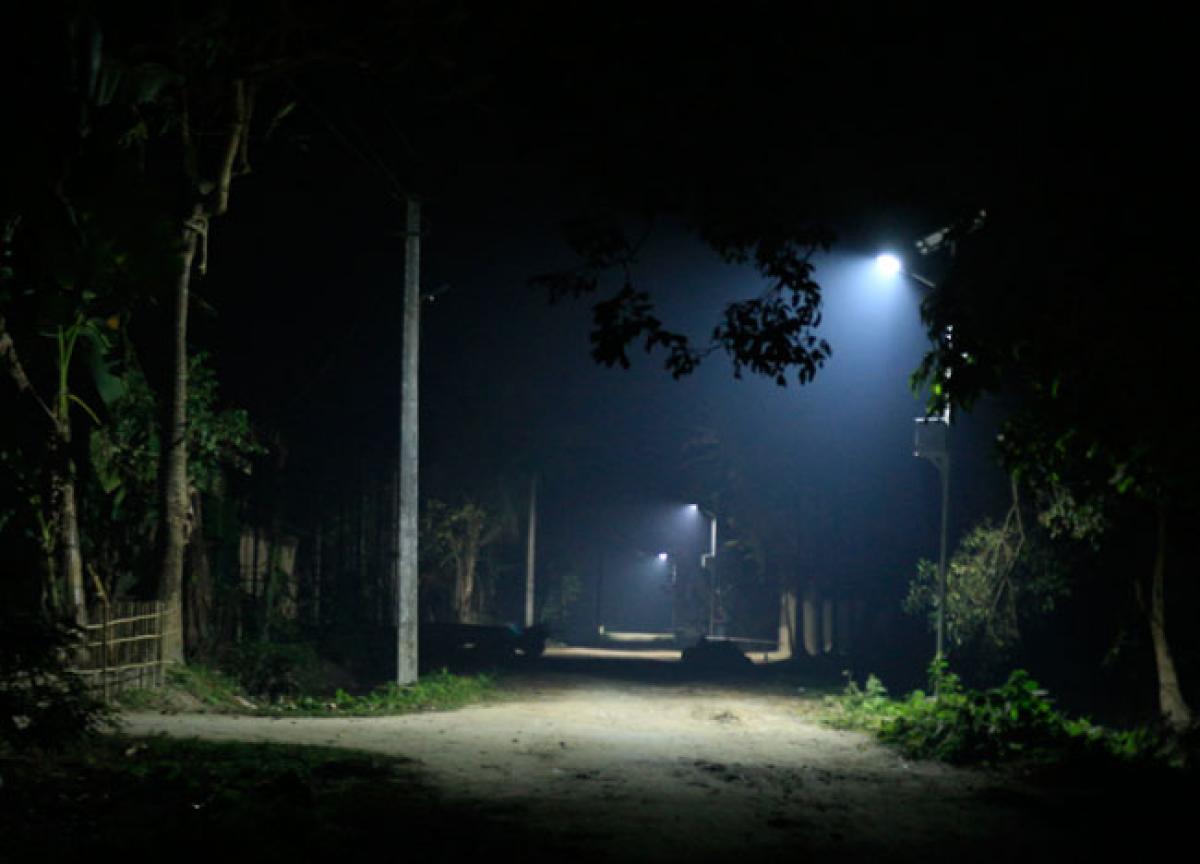Live
- District Collector Encourages Students to Utilize Government Facilities for a Better Future
- Per capita availability of fruits, vegetables increases in India
- FII buying reaches Rs 22,765 crore in Dec as economic growth stays resilient
- National Energy Conservation Day 2024: Date, Importance, and Easy Ways to Save Energy
- Gastronomic trouble: After 'disappearing' samosas Himachal CM in row over red jungle fowl
- Meaningful dialogue a priceless jewel of democracy: Jagdeep Dhankhar
- CM Revanth Reddy Advocates for Gurukuls as Talent Development Centers
- Zepto’s expenses surge over 71 pc in FY24, losses at Rs 1,248 crore
- Tim Southee matches Chris Gayle's six-hitting record in his farewell Test
- AP Mnister Ponguru Narayana Inspects Highway Connectivity Roads to Amaravati
Just In

An insurgency-hit village in Assam\'s Himalayan foothills where the residents long suffered stomach ailments due to the iron-contaminated water and only 10 percent of its around 250 households had proper sanitation facilities is now cited as the first \'smart village\' in the entire northeast -- thanks to two non-resident Assamese and a veteran journalist.
New Delhi: An insurgency-hit village in Assam's Himalayan foothills where the residents long suffered stomach ailments due to the iron-contaminated water and only 10 percent of its around 250 households had proper sanitation facilities is now cited as the first 'smart village' in the entire northeast -- thanks to two non-resident Assamese and a veteran journalist.
On the international border with Bhutan, Barsimaluguri in Baksa district -- one of the four Bodoland Territorial Area Districts (BTAD) administered by the Bodoland Territorial Council (BTC) -- has just 234 families.
"It was a typical village -- backward in every sense. A baseline study said only 10 percent (households) had sanitary toilets," Mrinal Talukdar, a journalist with over 25 years of experience and who currently heads NGO Nanda Talukdar Foundation (NTF), told IANS from Guwahati.
The NTF, which has been involved since 2015 in direct grassroots intervention through corporate social responsibility (CSR) initiatives by adopting backward villages and turning them into model villages, zeroed in on Barsimaluguri for its next project.
"We wanted an insurgency-infested yet reachable place from Guwahati within a radius of 150 km due to logistical reasons. We were interested in the north bank of the Brahmaputra river in the foothills of Bhutan... an area not many people venture out even today," he said. The village in Baksa, 80 km from Guwahati, fit the bill.
The foundation roped in Anirudh Goswami, working in Delhi, and Surajit Dutta, based in Bengaluru, for a project to turn backward Barsimaluguri into a modern village full of facilities.
Goswami provided technical and organisational support to the NTF, which managed to convince a leading financial PSU to fund the initiative, while Dutta served as the project leader.
The NTF project was shortlisted by Himachal Pradesh-based consultancy HIMCON, which in turn roped in donor India Infrastructure Finance Company Limited (IIFCL) to underwrite it.
Talukdar said the foundation decided to work on 4-5 aspects to make it a model village -- safe drinking water, total sanitation, alternative power, skill development and employment generation besides improving facilities for sports and education.
And the results are evident -- solving the problem of its metal-tainted water, Barsimaluguri has now become the first village in Assam to have a reverse osmosis (RO) plant which can deliver 500 litres of standard mineral water in an hour, while nearly half the households have got new sanitary toilets.
"The RO plant is managed by the villagers. They pay Rs.120 per month and take 20 litres of water a day. Which means 20 paisa per litre. They spend the money on salaries and upkeep," said Talukdar.
"In a bid to end open defecation, the project, surmounting the challenges of logistics and quality manpower and heavy monsoon, constructed 100 toilets in the village. We have covered almost 50 percent of the total households," he said, adding that they were "proud" to be associated with the Swachh Bharat Abhiyan.
The brightest part of the intervention was the solar energy component -- 100 houses were given solar kits and 75 streetlights were installed making Barsimaluguri the envy of every neighbouring village as it remains illuminated the whole night.
Talukdar says the project simultaneously moved to improve human resource, with a series of camps held for legal awareness, women empowerment, child development and skill development through the Indian Institute of Entrepreneurship.
"It's now time for us to pack up. We have identified another village, Jajimukh in Jorhat district. Now the hunt is on for a sponsor -- that is the most difficult part," he said.
"Every project has its challenges. Barsimaluguri had the challenge of the (Bodo militant group) NDFB and Jajimukh will have problems of transportation as there is no direct road there and one has to reach the village by boat," he said.
The foundation has a broad palette of activities -- starting with preservation of 19th century books, it now visits about 400 villages a year to conducts social audit of self-help groups developed by the State Institute of Rural Development and is also developing a teaching module on coverage of children and women for journalists with help from Unicef.
"Now Numaligarh Refinery Limited (NRL) has given us three villages in the vicinity of Golaghat to transform into smart villages and develop a sustainable model of livelihood," says Talukdar.

© 2024 Hyderabad Media House Limited/The Hans India. All rights reserved. Powered by hocalwire.com







